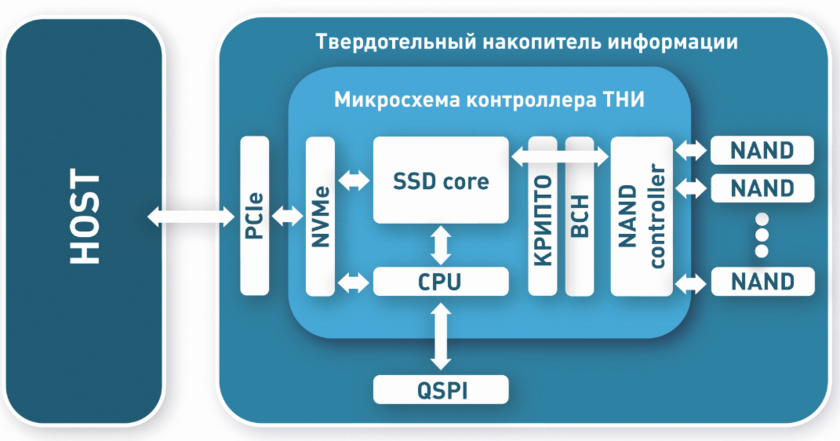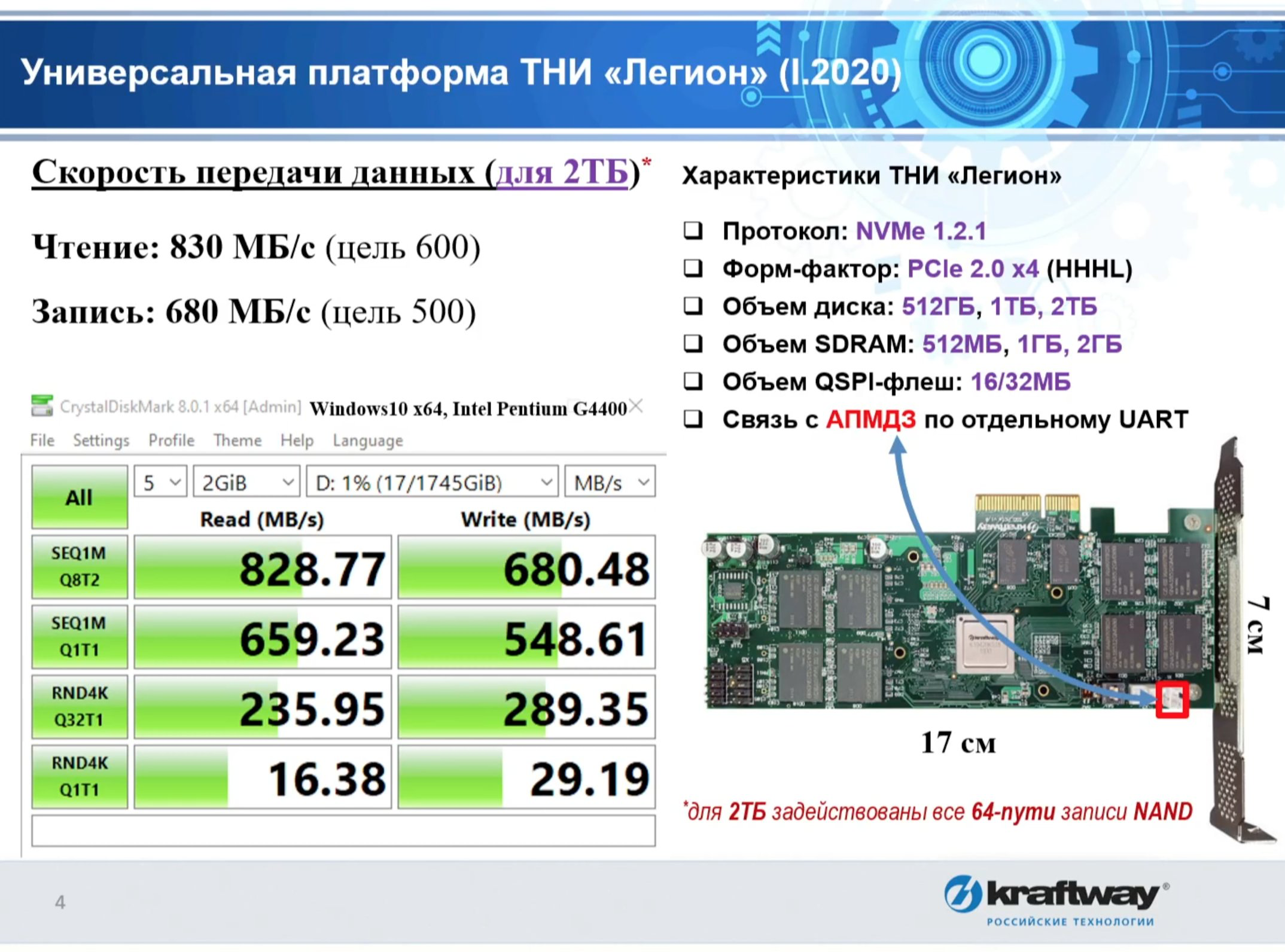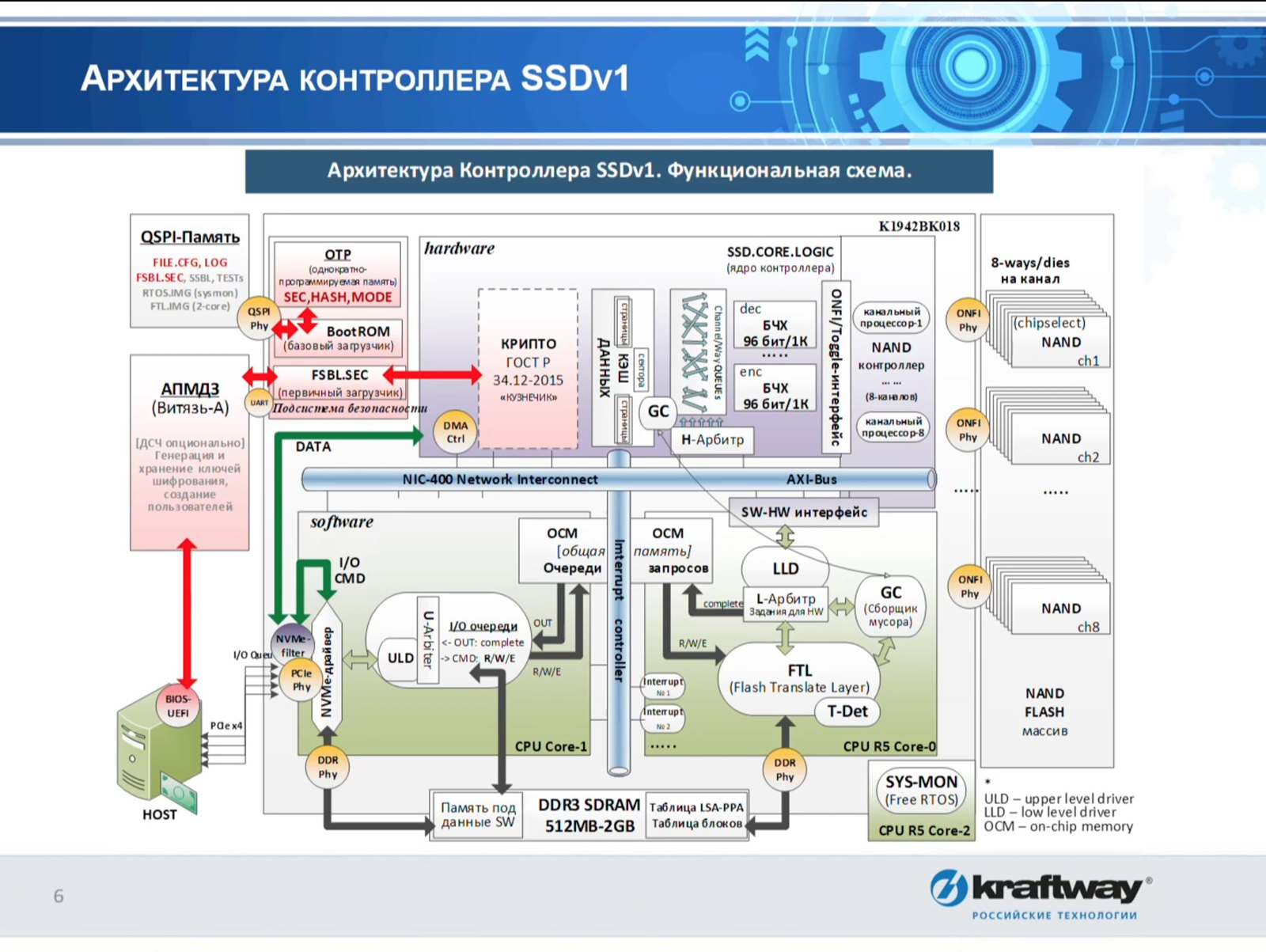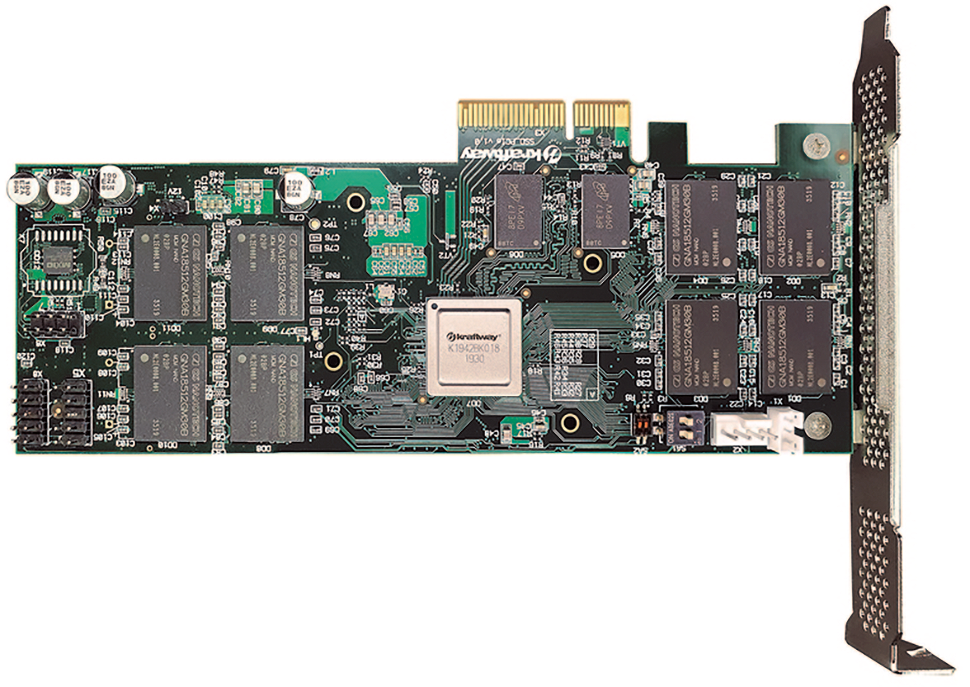Russia's Elbrus Development: A Homebrew SSD Controller
Kraftway develops own SSD controller for the Elbrus ecosystem.
Russia's MCST Elbrus microprocessors made a splash last year, but it takes a lot mot than a microprocessor to develop a completely self-sufficient computing platform. Among other things such nationally-oriented platforms need is a proprietary SSD controller, and apparently server maker Kraftway has developed one and demonstrated it at a conference this week. The chip will enable building encrypted SSDs featuring a proprietary encryption technology.
The Kraftway K1942BK018 is an Arm Cortex-R5-based NVMe 1.2.1-compliant controller with eight NAND channels that supports up to 2TB of flash memory as well as up to 2GB of DDR3 SDRAM cache. The chip features an ONFI 200MHz interface and is compatible with NAND chips produced by Micron and Toshiba and then packaged in Russia by GS Nanotech. The controller connects to the host using a PCIe 2.0 x4 interface and enables building SSDs in an HHHL or U.2 form-factor. The chip is made using TSMC's 40 nm process technology and comes in a BGA676 package. The developer claims that it consumes from 3.5W to 4W under load.
The manufacturer claims that the drives powered by the new controller will deliver an up to 828 MB/s read speed as well as an up to 659 MB/s read speed.
Surprisingly, the Kraftway K1942BK018 supports a rather outdated BCH 96-bit/1K ECC technology, which means that it may not support all modern types of 3D NAND.
The key feature of the Kraftway K1942BK018 is that it was fully developed in Russia and uses proprietary management algorithms as well as cryptography standards. The primary customers that will use the controller are various government agencies, the ministry of defense, state-controlled companies and other entities interested in maximum security and proprietary algorithms.
Kraftway plans to produce 10,000 SSDs based on its K1942BK018 controller in the coming months in a bid to use them with its PCs aimed at those markets.
Interestingly, but in addition to the Arm Cortex-R5-based K1942BK018 controller there are also two RISC-V-based SSD and USB drive controllers designed in Russia and based on cores developed in Saint Petersburg.
Get Tom's Hardware's best news and in-depth reviews, straight to your inbox.

Anton Shilov is a contributing writer at Tom’s Hardware. Over the past couple of decades, he has covered everything from CPUs and GPUs to supercomputers and from modern process technologies and latest fab tools to high-tech industry trends.
-
Glock24 I found the following errors:Reply
"but it takes a lot mot than a microprocessor"
"will deliver an up to 828 MB/s read speed as well as an up to 659 MB/s read speed"
Besides that, the SSD's seems a bit low for modern standards, but it's quite an accomplishment for a first try though. -
Co BIY 80% efficient product and double the cost will exclude a business from the global consumer markets but can be very profitable with government customers.Reply
That's true all over the world and probably with much worse numbers than that. -
Krotow If mentioned silicon is fast enough to control ICBM-s for Kremlin and can feed local oligarchy for a decades ahead then other rants and simple logic does not matter anymore. That is Russian tech at today.Reply



